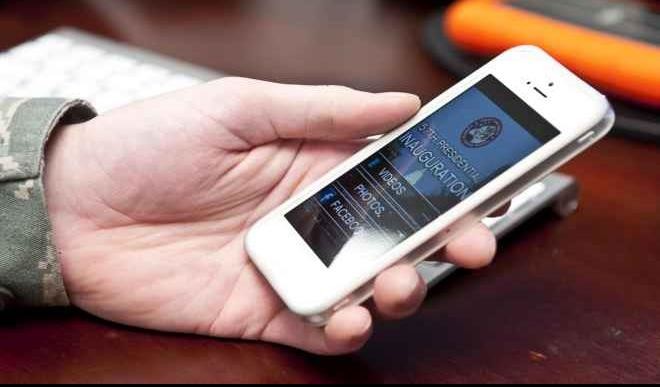
Technology has both helped and hurt, but mostly hurt, spelling. While spellcheck, autocorrect and autocomplete help us to effortlessly spell difficult words and save us time, they also sometimes mislead or fail us at the most critical moments. What is worse, the presence of these technologies and the mental dependence they engender have caused us to be lax in spelling. In other words, the ease of technology appears to have dulled the part of our brains that makes us alert to the importance of spelling.
Precisely because capacity for correct spelling is becoming endangered, people’s cognitive worth now tends to be measured by how well they spell words.
In this August 8, 2017 article by BBC’s Lennox Morrison, initially titled “the True Importance of Good Spelling,” the reader learns of the intricacies and dynamics of spelling in the new digital milieu we live in. The whole article can be found at http://www.bbc.com/capital/story/20170807-the-true-importance-of-good-spelling. Enjoy:
Gone are the days of secretarial typing pools and hardback desk dictionaries. Now, we conduct much of our daily business by quick-fire finger-jabbing on tiny screens. But ever-smaller technology, and an increasing pressure for ever-quicker response times with the advent of email, means it’s likely a typo will creep into our written communication, or worse, autocorrect will insert an inappropriate word.
We’ve all been there. Websites and online publications are littered with typos and even world leaders sometimes don’t pause to check tweets before pressing ‘send’. Who can forget President Trump’s infamous covfefe tweet?
While some spelling mistakes are harmless and funny, many aren’t. The humble typo not only has the power to make us appear less intelligent than we are. Poor spelling can also create confusion, a loss of clarity and meaning and in extreme cases it can cost millions in missed sales and job opportunities. It has the potential to wreck customer relationships and even ruin your chance of finding love online.
But if no-one is immune and technology is tending to make bad spelling commonplace – take the rise of ‘text speak’ abbreviations for example – is perfect orthography no longer of value? And, is it OK to misspell words?
Spell-check: part of the problem
Spell-checking tools may seem like the answer, but they also create a new problem, warns Anne Trubek, an expert in new writing technologies and founder of Belt Publishing in the US state of Ohio.
A long-term comparison of errors in university students’ essays in the US found that spelling used to be the most common mistake. But the new number one error in student writing is now using the ‘wrong word’, explains Trubek. “Spell-check, as most of us know, sometimes corrects spelling to a different word than intended; if the writing is not later proofread, this computer-created error goes unnoticed.”
New technologies, such as Apple’s Siri function, also contribute to the rising apathy toward correct spelling. “If you look at the development of technologies, whether it’s quill pens to fountain pens to ball point pens to keyboards, the goal is to go faster because you want to match the pace of the ideas in your head,” says Trubek. “Siri does that the best.”
Autocorrection is probably why an official White House press statement recently called for ‘peach’ in the Middle East, rather than ‘peace’, says Simon Horobin, professor of English language and literature at the University of Oxford. “There are all sorts of problems that are going to come up if you think you’ve got a completely fail-safe method. You’ve still got to learn how to spell,” he says.
Previously, written material went through a process of copy-editing and proofreading to strip out errors, but now online content goes up very quickly and there are often mistakes, says Horobin, author of Does Spelling Matter? and How English Became English. “People see their short-term messages as ephemeral, but in fact, part of the function of the internet is that it’s always there so years later people are still reading it,” he warns.
Yes, you’re being judged
A survey of 5,500 American singles in 2016 by online dating site Match.com found that 39% judged the suitability of candidates by their grasp of grammar – ranking that more important than their smile, dress sense or even the state of their teeth.
And research shows that as soon as people spot a spelling mistake on a website they’ll often leave it because they fear it’s fraudulent.
Corporations are aware that a portion of their image rests upon correct writing and spelling, says Roslyn Petelin, associate professor in writing at the University of Queensland in Australia. “Nothing can make you lose credibility more quickly and seem uneducated than a spelling mistake, and that includes apostrophes,” she says.
There have been several court cases revolving around spelling issues, she says, including the recently settled case of Taylor & Sons in the UK – where a multimillion-pound legal battle was waged over a mistake involving a single missing letter.
Indeed, a lack of a certain level of proficiency may be a barrier to getting a job at all. A lot of employers in Australia now ask candidates to take writing tests, says Petelin. “Young people coming out of university may have all the right interpersonal skills, but if they can’t write coherently, employers won’t give them a job.”
A 2015 survey of UK bosses employing collectively more than 1.2 million people, conducted for business lobby group CBI, found that 37% of employers were dissatisfied with standards of literacy and use of English among university and school leavers.
“It would be a mistake to tell young people that spelling doesn’t matter in this industry, or in this occupation, because those basic skills are a real gateway to other roles or to developing other skills,” says Pippa Morgan, the CBI’s head of education and skills.
Spelling skills are required more than ever, she says. “If you’re dealing with customer service enquiries via Twitter, that might be the one interaction customers have with that company and so the quality of that message, the use of language, is really, really important. It might be just as important as a friendly face in a store or voice over a phone,” says Morgan.
When it’s OK to vary spelling
Sometimes though, incorrect spelling, abbreviations or shortening of words is OK. “We for example use ‘biz’ in our tweeting as shorthand for business,” Morgan says.
And in some contexts, informal language is required. “If you send an email to a 21-year-old vice president that says ‘Dear Mr Jones’ and you’re using overly formal diction, that could be a problem,” says Trubek.
But even – or perhaps, especially – in the world of social media, self-proclaimed ‘grammar Nazis’ will call out spelling mistakes. Others try to cover themselves when emailing from their smartphone by adding a rider such as, ‘Sent on the fly by iphone. Please excuse any typos.’
Where once there were agreed conventions for letter writing, the online environment has created a new in-between form of discourse where we don’t quite know what the rules are, says Horobin. While relaxing the rules of spelling, grammar and punctuation might be acceptable on Twitter or in a Facebook post, email is trickier to gauge, he says. “Email can sometimes sit between the formal and the informal.”
Just as we adapt our speech depending on whether we’re giving a lecture, taking a job interview, or chatting to friends, we need to modify our usage in the digital world, says Horobin.
So what’s the best approach to adopt in the meantime?
“Err on using the traditional conventions and making sure that your spelling is up to scratch. Otherwise people will judge you on it. That is the harsh reality,” says Horobin.
“It’s better to be right and to seem slightly fussy and fusty than it is to try and come across as more relaxed and end up upsetting somebody because you’ve made some sort of basic error that they feel extremely strongly about.”

 Join Daily Trust WhatsApp Community For Quick Access To News and Happenings Around You.
Join Daily Trust WhatsApp Community For Quick Access To News and Happenings Around You.


